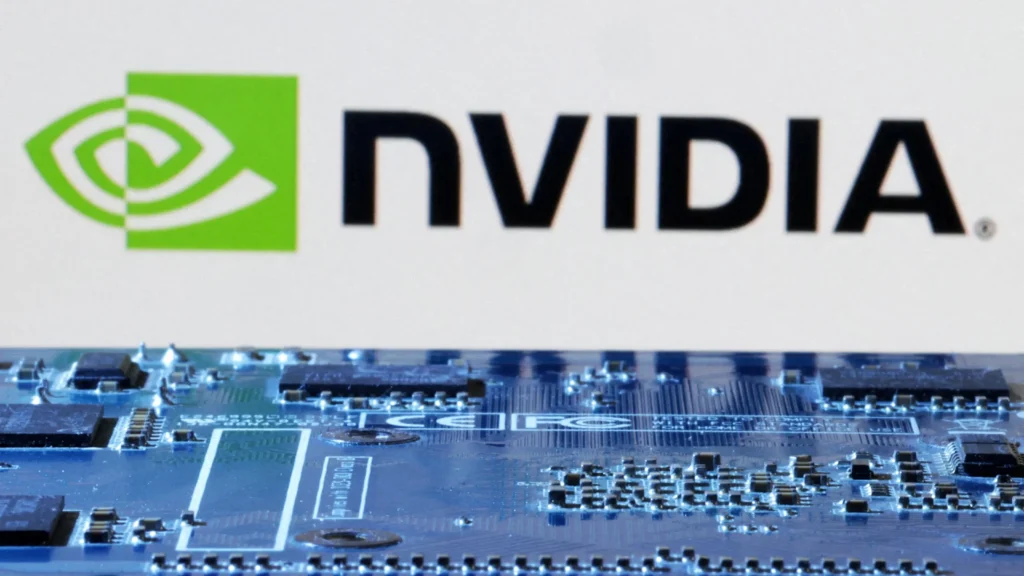Exciting news is buzzing in the world of technology, especially for those interested in Nvidia stock! Recently, big names like Meta Platforms and Microsoft have shared some promising updates that might change how investors feel about Nvidia. With the rise of artificial intelligence (AI), both companies are planning to invest a lot more money to improve their AI systems, which could mean great things for Nvidia. Let’s explore how these developments could help boost Nvidia’s stock and what it all means for the future of AI technology!
| **Key Points** | **Details** | |
|---|---|---|
| Meta Platforms’ AI Investment | CEO Mark Zuckerberg states that heavy investment in AI gives a strategic advantage. | |
| Microsoft’s AI Demand Forecast | CEO Satya Nadella expects rising demand for AI as training costs decrease. | |
| Nvidia Stock Price | Current price: $120.07. Median target price: $175, suggesting a 45% upside. | |
| Nvidia Market Capitalization | $2.9 trillion | |
| DeepSeek’s AI Model Performance | Claimed to be on par with leading U.S. models, trained for less than $6 million. | |
| Market Reaction to DeepSeek | Nvidia shares fell sharply, losing nearly $600 billion in value in one day. | |
| Implications for Nvidia | Concerns that U.S. firms may reduce spending on Nvidia GPUs due to new training methods. | |
| Positive Outlook from Major Customers | Meta and Microsoft indicate continued strong demand for Nvidia products. | |
| Jevons Paradox Implication | More efficient AI training techniques may increase overall demand for AI processors. | |
| Forecast on AI Infrastructure Spending | Predicted increase by 32% to $317 billion among top hyperscalers in 2025. | |
Nvidia’s Strong Market Position
Nvidia is a leading company in the field of artificial intelligence (AI) technology, known for its powerful graphics processing units (GPUs). These GPUs are essential for training AI models and running complex applications. Recently, despite a drop in stock price, Nvidia’s future looks promising due to strong support from major customers like Meta Platforms and Microsoft. Both companies plan to invest heavily in AI, which means they will continue to need Nvidia’s products, keeping demand high.
The median target price for Nvidia shares is currently set at $175, which suggests a potential increase of 45% from its recent price of $120. This shows that investors still believe in Nvidia’s ability to grow and succeed in the competitive AI market. As more companies, including Meta and Microsoft, invest in AI, Nvidia is likely to benefit from the increased demand for its GPUs and technology.
The Impact of AI on Business
Artificial intelligence is transforming how businesses operate and make decisions. Companies like Meta Platforms are investing billions to harness AI for better efficiency and performance. CEO Mark Zuckerberg has highlighted that investing in AI is a strategic move that can give Meta a competitive edge. This means that as more businesses adopt AI, they will rely on Nvidia’s technology to power their systems, which will help Nvidia’s growth in the long run.
Microsoft’s CEO, Satya Nadella, has also pointed out that as AI becomes more affordable, demand will continue to rise. He believes that improvements in AI technology will lead to even more companies using it, which will create a cycle of growth. For Nvidia, this means that as businesses adopt AI technologies, they will increasingly depend on Nvidia’s GPUs, securing Nvidia’s position as a key player in the tech industry.
Understanding Jevons Paradox in AI
Jevons Paradox is an interesting concept that helps us understand how technology impacts demand. It suggests that when technology makes something more efficient, like AI systems, the overall demand for it can actually increase. For Nvidia, this means that even if training AI models becomes cheaper, more companies will want to use AI, leading to higher demand for Nvidia’s GPUs. This paradox shows that improved efficiency can lead to greater overall usage.
Analysts predict that spending on AI infrastructure will rise significantly in the coming years, despite recent concerns about competition. This is because, as AI training methods improve, more companies will want to invest in AI technology. This increased spending will likely benefit Nvidia, as more companies will need its powerful GPUs to support their AI projects. So, understanding Jevons Paradox is essential for grasping how Nvidia can thrive in this evolving market.
The Strategic Importance of AI Investments
Meta Platforms’ CEO Mark Zuckerberg highlighted the critical role of substantial investments in AI as a strategic advantage for the company. By increasing capital expenditures by 66% to support generative AI projects, Meta is positioning itself to lead in the AI space. This investment not only strengthens Meta’s infrastructure but also enhances its competitive edge against rivals. As companies allocate more resources to AI, the need for advanced computing solutions, such as Nvidia’s GPUs, will remain a priority.
Zuckerberg’s insights suggest that even with the emergence of cost-effective AI training methods, the demand for powerful AI chips will persist. He argues that improved training techniques open doors for greater computing power applied to inference workloads, ultimately resulting in higher intelligence and service quality. This perspective reinforces the notion that Nvidia’s technology will continue to be essential for companies striving for excellence in AI applications.
Microsoft’s Vision for AI Growth
Microsoft’s CEO Satya Nadella emphasized the anticipated exponential demand for AI solutions as they become more affordable. He noted the significant efficiency gains in both training and inference processes, predicting that these advancements will fuel increased adoption across various sectors. As organizations recognize the potential of AI, the demand for high-performance GPUs from Nvidia is expected to rise, ensuring continued relevance in the market despite emerging competitors.
Nadella’s comments on Jevons paradox further illustrate how improved AI efficiency can lead to greater overall demand for AI services. As companies leverage Nvidia’s technology to enhance their AI capabilities, they will unlock new opportunities for innovation and service delivery. This symbiotic relationship between efficiency and demand positions Nvidia as a key player in the evolving AI landscape, suggesting a bright future for the company.
Understanding Jevons Paradox in AI
The Jevons paradox, introduced by economist William Stanley Jevons, posits that advancements in efficiency can lead to increased overall demand for a resource. In the context of Nvidia and the AI industry, this means that as AI training techniques become more efficient, the demand for AI software and services may surge. This paradox highlights the complexities of market dynamics, where cost savings from improved technologies can inadvertently drive up consumption.
For Nvidia, this understanding of Jevons paradox underscores the company’s potential for growth, even amid competition from emerging players like DeepSeek. As organizations invest more in AI infrastructure, the demand for Nvidia’s powerful GPUs is likely to rise, refuting concerns about reduced spending on AI chips. Analysts project a significant increase in capital expenditures among major tech firms, reinforcing Nvidia’s standing in a rapidly evolving market.
Market Predictions and Analyst Insights
Despite the recent turbulence caused by DeepSeek’s announcement, analysts remain optimistic about Nvidia’s future. With a median target price of $175 per share, representing a 45% upside from its current level, the consensus among experts indicates a robust outlook for the company. This optimism is bolstered by the continued investments from major clients like Meta and Microsoft, which highlight the ongoing demand for Nvidia’s technology.
Furthermore, Morgan Stanley’s revised forecasts for AI infrastructure spending among top hyperscalers reflect an increasing trend in capital allocation towards advanced AI solutions. As spending is expected to rise by 32% to $317 billion in 2025, Nvidia stands to benefit significantly from this growth. Investors should keep an eye on these trends, as they suggest strong future performance for Nvidia in the competitive AI landscape.
Frequently Asked Questions
What is Nvidia and why is it important?
**Nvidia** is a technology company that makes powerful computer chips. It is important because its chips help run advanced **AI** programs, which can do tasks like understanding speech or recognizing images.
What did Mark Zuckerberg say about AI investments at Meta?
Mark Zuckerberg, CEO of **Meta**, said that investing a lot in **AI** is a big advantage. This means Meta plans to spend more money to make their AI smarter and better at helping people.
How does the cost of training AI models affect companies?
When the cost to train **AI models** goes down, companies can spend less money. This means they can use their money for other important things, like buying better technology or improving their services.
What is the Jevons Paradox and how does it relate to AI?
**Jevons Paradox** is the idea that when technology becomes better and cheaper, people use it more. For AI, if it’s easier and cheaper to create, more companies will want to use it, increasing demand.
Why did Nvidia’s stock price drop suddenly?
Nvidia’s stock price dropped sharply because a new company, DeepSeek, trained an AI model for much less money. Investors worried this could mean less spending on Nvidia’s chips by other companies.
What is the expected future for Nvidia according to analysts?
Analysts believe Nvidia will still do well in the future. They expect more companies to spend on AI technology, which means Nvidia’s chips will still be in high demand.
What did Satya Nadella say about the future of AI?
Satya Nadella, CEO of **Microsoft**, said that as AI becomes cheaper, its use will grow a lot. This means more people and companies will want to use AI technology.
Summary
The content discusses the implications of recent developments for Nvidia amidst fluctuating market dynamics. Meta Platforms and Microsoft CEOs highlight substantial investments in AI, seeing it as a strategic advantage, with capital expenditures expected to rise significantly. Despite a sharp stock decline due to a competing AI model from China’s DeepSeek, analysts remain optimistic, maintaining a median target price of $175 per share for Nvidia. This reflects a potential upside driven by anticipated growth in AI demand and infrastructure spending, suggesting that Nvidia could still thrive despite recent challenges.








